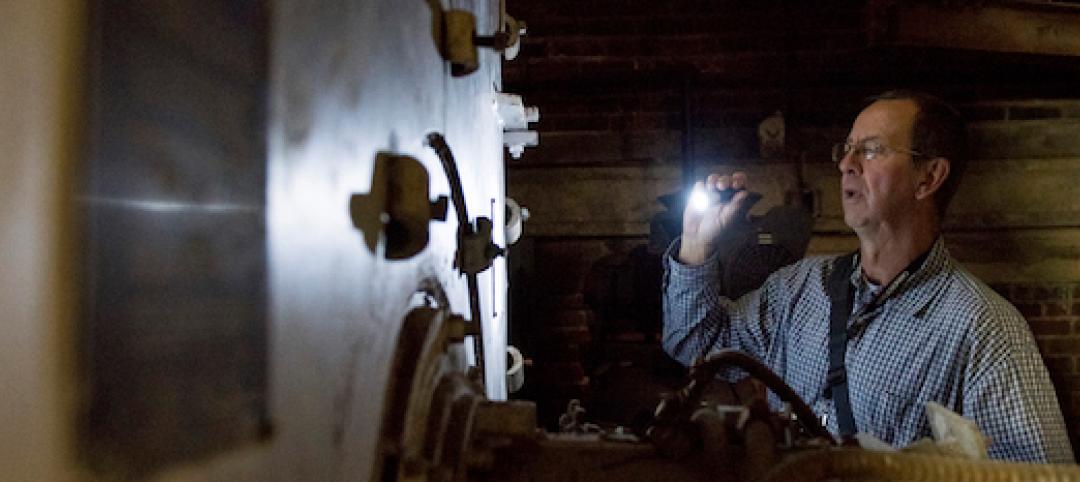The construction industry continues to tackle the challenges of rising construction materials costs, a skilled labor shortage and overall lack of productivity improvements, offering an expansive opportunity for disruption. According to the newly released JLL research report, “The State of Construction Technology,” Silicon Valley investors are stepping in to seize that opportunity. Venture capital funds are funneling unprecedented levels of cash into Construction Technology startups’ pockets.
In the first half of 2018, venture capital firms invested $1.05 billion in global construction tech startups, setting a record high. The 2018 investment volume is already up nearly 30 percent over the 2017 total, with six months still remaining in the year. To date, the Construction Technology sector has found three Unicorns—startups valued at more than $1 billion—in Katerra, Procore and Uptake.
“The construction sector is on the verge of major disruption as tech start-ups tackle head-on the industry’s biggest pressure points,” says Todd Burns, President, Project and Development Services, JLL. “These startups can provide technology that helps deliver projects faster, cheaper and with fewer resources than ever before, effectively addressing the existing challenges in the industry.”
Emerging technology is opening a significant opportunity for venture capitalists and construction executives. JLL recognized this opportunity early, and last year brought on two Silicon Valley veterans to launch JLL Spark, a global business that identifies and delivers new technology-driven real estate service offerings, including a $100 million global venture fund.
JLL’s research uncovered three primary focus areas of construction tech startups:
1. Collaboration software. Considering that dozens of professionals can be working on a given construction project at the same time, leveraging cloud-based software to optimize the workflow could profoundly improve collaboration and impact the bottom line. Front-runners such as Procore Technologies, PlanGrid, Clarizen and Flux Factory are utilizing cloud capabilities, mobile platforms and dedicated design software to enable collaboration.
2. Offsite construction. As skilled construction labor becomes harder to find and general competition for construction inputs heats up, offsite construction startups are championing a different approach to how buildings are built: building component manufacturing. Offsite manufacturing and delivery of finalized components to the construction site equals shorter assembly time and more centralized production to help offset the labor pinch and rising costs. Industry leaders include Katerra, Blu Homes and Project Frog.
3. Big data and artificial intelligence (AI). From materials delivery to equipment maintenance, predictive data and automation tools can collect data on nearly every aspect of a construction project, resulting in data pools at risk of going to waste. Armed with big data and AI software, construction teams can make more informed business decisions to save time and money by extending the life of expensive equipment, reducing worksite risk and automating simple business processes. Top startups in this area include Uptake Technologies, Flux Factory and SmartEquip.
Since 2009, investors have closed 478 Construction Technology funding deals totaling $4.34 billion, underscoring the continued volume of construction projects and the recent urgency to innovate and offset industry costs. The huge bump in Construction Technology investment in 2018 is hopeful proof of an impending surge of technology and hardware marvels, promising to optimize the industry.
Related Stories
Building Team | Jan 10, 2017
Fiber canopies proposed to turn Phoenix streets into comfortable public space
The proposal was the winning entry in a design competition asking for ways to strengthen the identity of the Arizona city.
Building Team | Jan 6, 2017
CannonDesign launches REALIZE Life Safety Solutions
“The Final Rule presents a considerable update to the life safety directives most healthcare systems have become accustomed to,” says Joe Cassata, principal at CannonDesign.
Building Team | Jan 3, 2017
How does your firm’s hit rate stack up to the AEC competition?
If your firm is not converting at least a third of project proposals when competing for new work, it may be time to reassess your marketing tactics and processes.
Building Team | Dec 30, 2016
An open letter to the AEC C-suite
Women AEC professionals need you to take action.
Building Team | Dec 14, 2016
Hackathons set the stage at events for women in AEC and BD+C Under-40s
Popular among engineers, hackathons are forums that encourage “constructive collision” by bringing people into a room, letting them self-organize around common interests and goals, and having them work together in groups over two or three consecutive days to devise workable inventions that fill identifiable needs.
Building Team | Dec 14, 2016
Will Trump-led America be a boon or bust for U.S. AEC firms?
Regardless of which side of the aisle you stand on, election night was a jaw-dropping moment.
Building Team | Dec 8, 2016
The NYC Public Design Commission recognizes 12 projects with its 2016 Excellence in Design Award
2016 marked the 34th year the Public Design Commission has handed out its Excellence in Design Awards.
Building Team | Dec 2, 2016
Alexandria Real Estate Equities becomes first real estate investment trust to be named a First-in-Class Fitwel Champion
Fitwel building certification was developed to foster positive impacts on building occupant health and productivity through improvements to workplace design and policies.
Building Team | Nov 15, 2016
Major architecture firms are flocking to Dubai’s Design District
Three more major firms are making a permanent home in Dubai.
Architects | Nov 11, 2016
Six finalists selected for London’s Illuminated River competition
The competition is searching for the best design for lighting the bridges of central London.
















